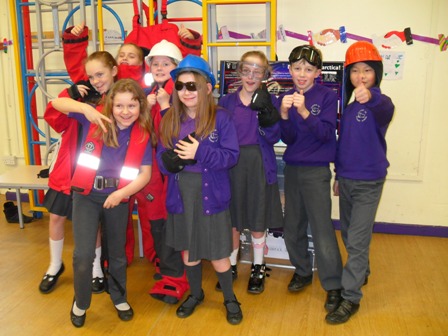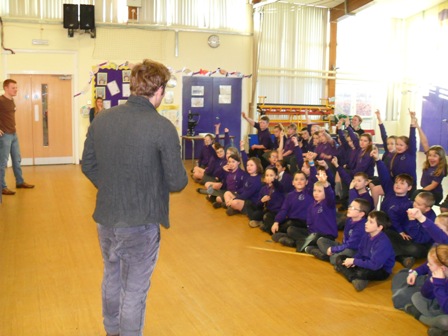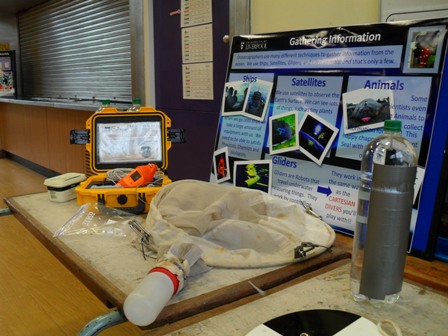Pupils at a local primary school were taken on a journey of discovery through the Antarctic thanks to a team of polar oceanographers from the University of Liverpool.
A group of staff and PhD students from the School of Environmental Sciences visited Garston C of E Primary School to help explain the mysteries of the ocean to pupils.
The children, aged between 7 and 11 years, took part in a series of interactive sessions to help them learn about the environment, biology and climate in Antarctica and the Southern Ocean.
Dr Alessandro Tagliabue, Lecturer, Dr Jonathan Lauderdale, Post-doctoral researcher and PhD students; Nick Rogan, Nuala Carson and Matthew Donnelly, talked to the school children about their exploits in and around Antarctica and showed video clips of a recent research cruise.
Dressing up
Children got to try on cold-weather clothing that oceanographers use whilst working on deck, as researchers spoke about the harsh weather conditions.
PhD student, Matt Donnelly explained the origin of, and difference between, land ice, icebergs and discussed the seasonal changes in sea ice cover and how it relates to sea level rise. To help them visualise the changes, children worked in pairs to run an experiment showing what the effect on the water level when ice is added to water in a beaker; then what happens when it melts.
In a session led by Dr Alessandro Tagliabue, the children used microscopes to examine phytoplankton and zooplankton as they learnt about the remarkable world of life at the bottom of the marine food chain.
Other activities included; Antarctica’s Undersea Waterfalls, which helped pupils learn about ocean circulation, and Gathering Information from the Ocean, which included a demonstration of how cartesian divers (buoyancy engines) work.
The visit was part of the School of Environmental Sciences outreach programme aimed at broadening youngsters understanding and knowledge of science, whilst raising their aspirations.
PhD Student, Nuala Carson, who was part of the group said: “It was great to bring the important role of polar science and oceanography to a young audience; they took part in the practical activities with excitement, whilst at the same time remembering an amazing amount of information.”
Mrs James, a teacher at the school, added: “The activities designed and carried out by the University experts made our Antarctica project come to life. Not only were the children learning the important facts and figures but they were ‘doing’ – this enabled all children to get involved, despite any learning difficulties, and left a long-lasting impression on them all.”


